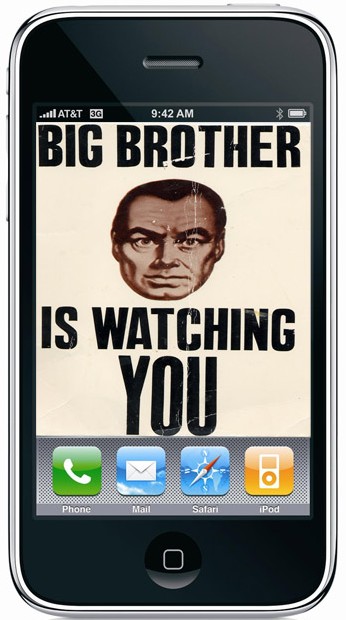 After being tipped off by my friend Sully, it seems The Sun Times of Chicago had an article that I found to be just as amusing as interesting. The story relates to criminal cases in which iPhones are seized in a search warrant. Apparently our beloved device has more data stored on it that other smartphones, which can be used by investigators to figure out whose telling the truth, but more importantly, who isn’t.
After being tipped off by my friend Sully, it seems The Sun Times of Chicago had an article that I found to be just as amusing as interesting. The story relates to criminal cases in which iPhones are seized in a search warrant. Apparently our beloved device has more data stored on it that other smartphones, which can be used by investigators to figure out whose telling the truth, but more importantly, who isn’t.
Detective Josh Fazio is quoted saying, “When someone tells me they have an iPhone in a case, I say, ‘Yeah!’ I can do tons with an iPhone,”. He’s right, sort of. If an iPhone is already seized in a case that already has had a warrant issued, I would hope that there is more valuable evidence recovered that would actually demand said permission.
While many owners (criminal or not) routinely delete call info and text messages, deleting such content doesn’t actually rid it from the phone’s history. As John B. Minor, a member of the International Society of Forensic Computer Examiners tells us, the data is stored in the phones “memory”, making it easy for technically sound officers to access the content.
Some of the data in question is:
- GPS apps, which automatically takes a private screen shot of the last image, as soon as you exit the application
- Pictures stamped with geo coordinates, which could possibly record the serial number of the specific device it was taken on.
- Browser GPS info Apple allows for advertising, which of course includes what sites you’ve been snooping in.
Perhaps the most useful information the police can access is that from your on-screen keyboard. You know that useful feature of having your iPhone that “learns your language”? That too could be accessed, allowing authorities to literally follow your every text, email, or tweet. Is anyone, whether you’re a criminal or not, a bit sketched out by this?
All of this makes for a nice story, but what happened to “real” criminals using throw away, pay-as-you-go phones? One look at my bank account will tell you I’m no lawyer, however I don’t think police can just look through your phone without permission, (barring warrants, of course). Am I the only one who would like some testimonials of actual cases solved by recovering iPhones?
The article ends with some generic story of a father reunited with his “run-away” daughter, whom which was simply staying at a friend of hers; which makes me wonder just how useful any iPhones recovered have been in Chicago. I don’t promote illegal activity, but I also think Big Brother needs someone watching them. So is this a legitimate avenue for officers, or just another example of freedom through removal of privacy? Use your 1st Amendment rights below in our comment box, and tell us your side of the story.